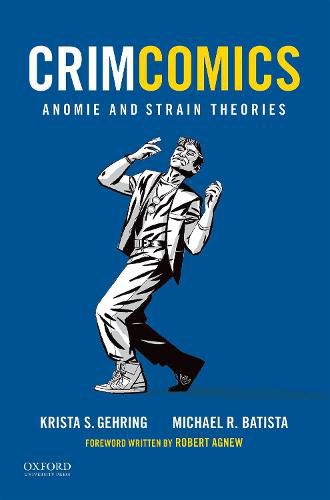Readings Newsletter
Become a Readings Member to make your shopping experience even easier.
Sign in or sign up for free!
You’re not far away from qualifying for FREE standard shipping within Australia
You’ve qualified for FREE standard shipping within Australia
The cart is loading…






CrimComics offers a new way to approach criminological theory by engaging students with impactful, highly visual illustrated texts. Each CrimComics Issue traces the development of the theory–placing it in social and political context–and demonstrates its application to the real world. The last page of each Issue features review questions and key terms. Issue 5, Anomie and Strain Theories, introduces students to Robert Merton’s Anomie Theory, which posits that the idea of the American dream is implicated in the social production of crime. It also discusses two extensions of his theory, General Strain Theory and Institutional-Anomie Theory. Other issues include Issue 1: Origins of Criminology, Issue 2: Biology and Criminality, Issue 3: Classical and Neoclassical Criminology, and Issue 4, Social Disorganization Theory.
$9.00 standard shipping within Australia
FREE standard shipping within Australia for orders over $100.00
Express & International shipping calculated at checkout
CrimComics offers a new way to approach criminological theory by engaging students with impactful, highly visual illustrated texts. Each CrimComics Issue traces the development of the theory–placing it in social and political context–and demonstrates its application to the real world. The last page of each Issue features review questions and key terms. Issue 5, Anomie and Strain Theories, introduces students to Robert Merton’s Anomie Theory, which posits that the idea of the American dream is implicated in the social production of crime. It also discusses two extensions of his theory, General Strain Theory and Institutional-Anomie Theory. Other issues include Issue 1: Origins of Criminology, Issue 2: Biology and Criminality, Issue 3: Classical and Neoclassical Criminology, and Issue 4, Social Disorganization Theory.